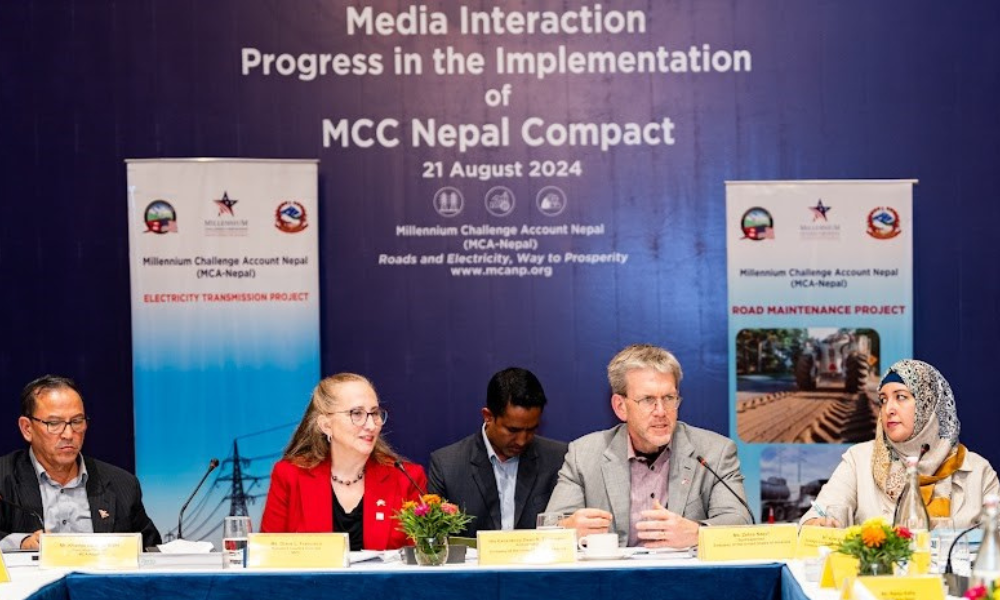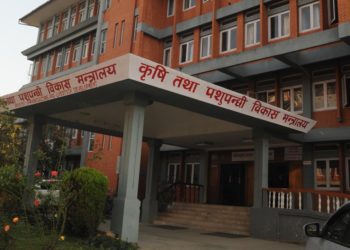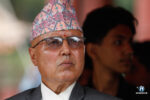KATHMANDU: The Millennium Challenge Account Nepal (MCA-Nepal) project has made what it describes as “real momentum” in its implementation over the past year.
According to MCA-Nepal, it has completed major contract procurements and made “significant progress” in preparing sites for contractors.
Khadga Bahadur Bisht, Executive Director of MCA-Nepal said MCA-Nepal has awarded and signed contracts worth approximately US$ 126 million for the construction of three 400 kV GIS substations in Nawalparasi West, Nuwakot, and Tanahun from May to July 2024.
Speaking to journalists at a press conference in Kathmandu on the occasion to mark the one year on of the MCC-Nepal Compact, he noted that the New Damauli and Ratmate Substations, each with a capacity of 1000 MVA, will be the largest in the country.
He also highlighted that a two-year, US$ 1 million Livelihood Restoration Program for 270 people affected by the Ratmate Substation project concluded on May 30, 2024.
“The success of the MCC Compact is ultimately for the benefit of the Nepali people,” she stated. Francisco emphasized that the MCC Nepal Compact is part of the United States’ long-standing support for Nepal’s development.
This program supported new business ventures and prosperity through training in high-value agriculture, vocational skills, and financial literacy.
According to him, the MCA-Nepal has acquired around 400 Ropanis of land for the substation.
The contractor for an 18 km cross-border transmission line segment has been selected and will be awarded the contract within August 2024, he stated.
Bisht said tha consultants are overseeing construction and preparing to re-launch procurement for a 297 km transmission line later this year.
Compensation Fixation Committees (CFCs) are working on land rates for 856 transmission line tower pads across nine districts, with rates in Dhading, Makwanpur, and Nawalparasi West set as of July 2024, he said adding that bank accounts have been opened and financial literacy training provided for compensation recipients, with similar work planned for Kathmandu district.
He further stated that forest census work is completed in nine out of ten project-affected districts, with verification underway for forest permits.
“MCA-Nepal plans to start and complete work in Kathmandu district this fiscal year,” Bisht stated.
According to him, a US$ 1.2 million contract signed on July 22, 2024, will provide advisory support to the Electricity Regulatory Commission to enhance transparency, efficiency, and competition in Nepal’s power sector.
Another contract for US$ 2.4 million, signed on July 15, 2024, will provide consultancy services to develop Municipal Energy Plans and enhance productive electricity use within affected wards under the MCA Partnership Program, he stated.
For the Road Maintenance Project, he said that the Initial Environmental Examination (IEE) Report for a 40 km segment of the East-West Highway has been approved.
MCA-Nepal plans to procure road maintenance works using Full Depth Reclamation (FDR) technology this year.
Looking ahead, MCA-Nepal intends to sign the contract for the remaining 297 km of transmission line, continue with construction, fix land rates in all affected districts, distribute compensation, and select a contractor for road maintenance in the second year.
Bisht acknowledged that while they anticipate meeting these goals, working with communities affected by land acquisition can be time-consuming in Nepal.
The MCC also reported that the Initial Environmental Examination (IEE) Report for road maintenance on the 40-km segment of the East-West Highway, from Dhan Khola to Lamahi, has been approved.
MCA-Nepal plans to commence procurement for road maintenance using Full Depth Reclamation (FDR) technology later this year.
Meanwhile, Diane L. Francisco, Resident Country Director of the Millennium Challenge Corporation (MCC), praised several key accomplishments, including the signing of contracts for three substations, providing technical support to the Electricity Regulatory Authority, launching the MCA Partnership Program, and making significant progress in obtaining environmental permits and land acquisition.
“The success of the MCC Compact is ultimately for the benefit of the Nepali people,” she stated. Francisco emphasized that the MCC Nepal Compact is part of the United States’ long-standing support for Nepal’s development.
“These projects will help Nepal meet its domestic power goals while unlocking the potential for cross-border power trade,” she added.
Francisco expressed optimism that the MCC project would be completed within the planned timeframe and commended the Nepalese government for its efforts to expedite the project.
She emphasized that the project is intended not only to reduce poverty in Nepal but also to address various other challenges.
US Ambassador to Nepal, Dean R. Thompson, assured that the United States would continue to support Nepal despite any changes in government and noted that MCA-Nepal has advanced smoothly compared to other countries.
He acknowledged the cooperation of all stakeholders in ensuring the project’s timely completion and appreciated the Nepalese government’s support in advancing the MCC initiative.









Comment